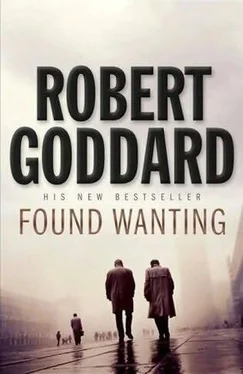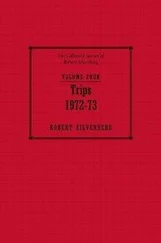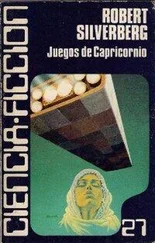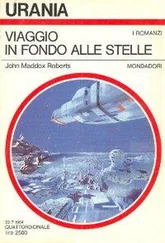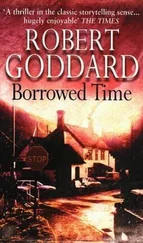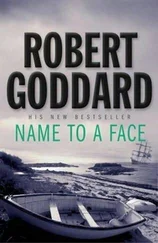Eusden walked up Nyhavn to Kongens Nytorv, the broad square at the eastern end of Strøget. He was in no hurry to return to his cramped room at the Phoenix. He knew he ought to eat something but had no appetite. His senses were alert, his nerves jangling. He felt exposed and helpless and foolish for feeling so. Marty needed to be told what had happened, but there was no way Århus Kommunehospital was going to put a call through to him at this hour. Eusden was trapped between the urge to act and the certainty that for the moment there was nothing he could do.
He remembered there was a quaint old bar on the square where he had passed a carefree hour one summer’s night back in 1989: Hviids Vinstue. He went in, found it reassuringly unaltered and drank several glasses of the house schnapps. Alcohol soon began to take the edge off his anxiety. Burgaard had killed himself in a car crash. That was all there was to it. There was no second car, no van speeding past, then swerving in, causing Burgaard to swerve and skid. It was-
A van. Marty had nearly been run over by one before collapsing at the bus stop. Maybe there really was a plot. And maybe the plotters had banked on Eusden being in the car as well. Maybe they had only just – or still not – learnt that Burgaard had left him behind. His mouth dried as he found himself actually crediting the possibility.
He decided to go back to the Phoenix. Cramped or not, his room promised safety if nothing else. He finished his schnapps and left.
A short distance round the square was Copenhagen’s grand hotel, the d’Angleterre, where he and Gemma had taken Holly for tea one afternoon, earning the girl’s highest accolade: ‘Ace.’ Eusden paused to gaze in at the hotel’s warmly lit windows. It was to occur to him later in the evening that if he had lingered at Hviids just a little longer or alternatively pressed straight on in that instant, he would not have been standing there when a couple emerged from the d’Angleterre into the chill night air.
The woman was fur-coated and -hatted, amply proportioned in height and girth, dark-skinned and statuesquely poised. She stopped, instantly aware of Eusden’s astonished gaze and that the cause of his astonishment was not her, but her companion, a tall, middle-aged man in a dark-green overcoat. ‘Do you know this gentleman, Werner?’ she asked in a lilting American accent. ‘He certainly seems to know you.’
‘Oh, yes.’ Straub gave Eusden a wintry smile. ‘We know each other.’
‘Richard Eusden. Regina Celeste.’ Straub managed the introductions with measured aplomb. Eusden had already guessed that the lady was the moneybags from Virginia Straub had been planning to sell the contents of the case to. What he could not guess was who he planned to say Eusden was. But he did not have to wait long to find out. ‘Richard’s a friend of Marty Hewitson’s.’ This was a surprise. Did he propose to continue by explaining how he had treated Marty? No, of course not. ‘Is he here with you in Copenhagen, Richard?’
‘It would be so convenient if he was,’ said Regina as Eusden hesitated over an answer. ‘The man’s been leading us quite a dance.’
‘Has he really?’
‘I’m afraid it’s the kind of thing I’ve gotten used to since I became an Anastasian.’
‘A what?’
‘A true believer in the Grand Duchess. Anastasia Manahan. Maybe you don’t call yourself that over here. But I guess you must be one if you’re a friend of Mr Hewitson’s. So, where’s he hiding himself?’
‘I… don’t really know.’
‘What has brought you to Copenhagen, then?’ asked Straub.
‘The same as you, perhaps.’
‘Why don’t you join us for dinner, Mr Eusden?’ Regina trilled. ‘We were on our way to a restaurant. Close by, you said, Werner?’
‘Very.’
‘We could talk there. And from what Werner tells me, we have plenty to talk about.’
‘Indeed,’ said Straub. His guarded expression revealed some scanty hints of alarm mixed with determined opportunism. He obviously did not want Eusden to tell Regina what he had done to Marty, though it was equally obvious he would merely utter a horrified and doubtless credible denial. But nor did he want Eusden to melt away into the night. Happenstance had given him the chance to probe his opponent’s defences, albeit vicariously. But it was a chance that cut both ways.
‘I’d be delighted to join you,’ said Eusden.
The Restaurant Els was indeed close by, only a short step away across the square, a candle-lit haven of mirrors and murals presided over by the prominently mounted head of the eponymous elk. Or, as Regina described him, ‘My Lord, a moose.’
They were settled at a table and supplied with menus. Aperitifs were declined on the grounds that champagne had already been quaffed at the d’Angleterre. Eusden was happy to go along with this. His head was clear despite the amount he had already drunk, but he needed to keep it that way. He and Straub had embarked on a battle of wits, with Regina as unwitting referee. Predictably, Straub sought to seize the initiative, by creatively refashioning the circumstances of their acquaintance for Regina’s benefit.
In this version of events, Eusden had been visiting Marty in Amsterdam after hearing of his friend’s illness, and had accompanied him to Hamburg at the time of Marty’s initial discussions with Straub about selling his grandfather’s archive of Anastasia-related documents. ‘I had intended we would both meet you in Frankfurt, Regina,’ Straub continued, ‘but Marty was too ill to travel. Then came our great surprise, Richard. When we arrived at the Vier Jahreszeiten yesterday, we found you and Marty had left.’
‘Destination unknown,’ put in Regina, who had discarded her furs to reveal a helmet of tightly curled gold-grey hair, a dramatically cut purple dress and an extravagant amount of cleavage. With her huge eyes and vast, ever-present smile, she seemed cast as cheerleader for Straub’s artfully ad-libbed cover story. He had clearly done a lot of thinking on his feet over the past couple of days. And now it was Eusden’s turn to do the same.
Supplied with extra thinking time by the taking of food orders and Straub’s theatrical agonizing over the wine list, Eusden embarked on what he reckoned was the least implausible of many improbable explanations for his presence in Copenhagen. ‘Marty persuaded me to go home on Tuesday. He said he was feeling a lot better and I had work commitments to deal with in London, so it seemed to make sense. I booked a flight and set off for the airport. But I had the impression Marty was trying to get rid of me. I don’t know why. It worried me. In the end, I couldn’t go. I thought he might be sicker than he was letting on. So, I doubled back to the hotel. To my surprise, they said he’d just booked out. The porter said he’d put him in a taxi to the central train station. I headed off there. It’s a big place, as you know, Werner. Logically, I stood no chance of finding him. But, as it happened, I did spot him, boarding a train to Copenhagen. It pulled out before I could make it to the platform. I had no idea what he was up to. I still haven’t. I followed by the next train. I’ve been trawling the hotels since I arrived, trying to track him down. So far, without any luck.’
‘You’ve rung him, of course,’ Straub prompted.
‘No answer. It’s very strange. I’m seriously concerned about him.’
‘Of course.’ Straub nodded sympathetically. ‘I was annoyed, I must admit, that he left Hamburg without warning, but from what you say he may be in some… difficulty.’
‘What kinda difficulty might that be?’ asked Regina. It was undeniably a good question.
Читать дальше
